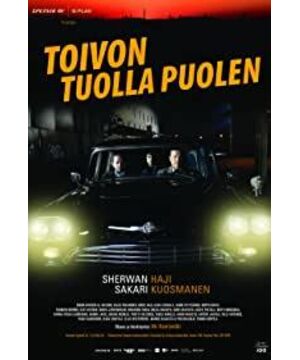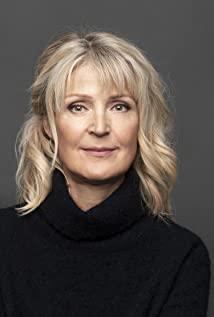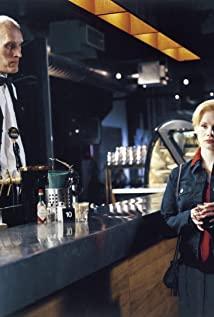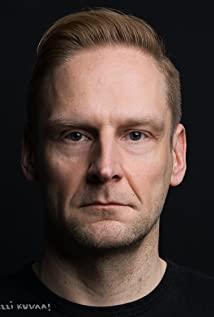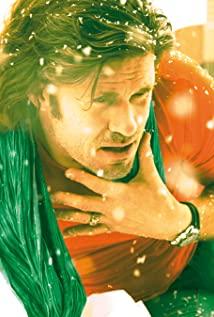Before we saw Finnish director Aki Kaurismaki's new work "The Other Side of Hope", when we could only infer the plot of the story based on the few words circulating on the Internet, a problem was already in those who are over-curious and keen on eloquent words. The fans of the film have produced: what does the so-called "the other side of hope" mean? Desperate? Disappointed? Maybe a wish? In a refugee-themed film, does the protagonist despair of his own existence, disappointed with the Finns, or, on the contrary, get asylum as he wishes? Now, the movie is in front of you, and the viewing has ended. Is there an answer to this question? Strange to say, this question is still an unsolved mystery to me.
The beginning of the film is undoubtedly heartwarming. Khalid Ali, a Syrian refugee who climbed out of the coal pile, was covered in darkness, walking through the silent port in the dark like a ghost from a different dimension world, no one knew or cared about his existence; Looking from a distance, the buildings flickered with lights, reminiscent of the desire of a little match girl, revealing an ancient and modern Andersen-like warmth (and coldness). However, when we are full of expectations that Kaurismaki and his new work will begin (and end) in the stark contrast between darkness and light, displacement and peace and contentment, Khalid, the protagonist, walks out of the frame and disappears into the night. . The camera returns to the building again and focuses on a family with exceptionally bright lights.
Unexpectedly, the imaginary Finnish "warm family" was beaten to shreds by the cruel reality: there, a man named Vikström Waldema was packing his luggage, and he picked up the house. The ring on the lower ring finger slammed out of the door, and the woman threw the man's ring into the ashtray without saying a word, and resolutely put the cigarette butt on it. Wickstrom drives his black car in the dark and listens to sad songs about parting, and from there he embarks on a road of no return. In this way, a Syrian refugee, a native of Finland, two men crossed on a zebra crossing, but did not know that they would meet again later; the two lost the shelter of their family on the same night and walked into the boundless loneliness and darkness together. .
It is no exaggeration to say that this textbook opening is worth at least a silver bear, because it has already shown extraordinary artistic and social significance in just five and a half minutes: the entire paragraph has nothing but the lyrics. In a word, two stories are told entirely by the editing of the camera and the coordination of sound and picture, which is undoubtedly a challenge for the director. Looking further, the deep meaning of this narrative is that since the two men are in the same situation, the "give-accept" and "violence-resist" models commonly used in refugee movies lose their applicability, and refugees are no longer local rescuers. The accessory of the person, whose personality and dignity have been strengthened like never before.
In this sense, "The Other Side of Hope" is reminiscent of this year's Oscar-winning "Moonlight" -- if the black people in "Moonlight" are inherently anti-black, then the film's Refugees are also anti-refugee images, whether it is Khalid, who finally gave up seeking help from his boss, or his sister who wants to keep his name and identity, or the refugee group who is more humble and polite than Finns in the film. peculiarities of characterization. The disappearance of the “Virgin Mary”—the biggest feeling the audience feels after watching it—doesn’t stem from some kind of “Nordic humour” in my opinion, but precisely because of the huge role played by the texture and structure of the film itself.
"The Other Side of Hope" is not the first time Kaurismaki has approached the subject of refugees. As early as six years earlier in Le Havre, Kaurismaki had prophetically shifted his focus from the native population to the refugees (four years before the arrival of the mass refugee wave in Europe), but no matter the angle How it changes, what remains unchanged is the narrative of the bottom-level problems and social contradictions. Kawhi may indeed be a "still" director - both an embodiment of his authorship, but also considered "self-repeating" and "stopping" - restaurants, bars, shelters, dark city corners are still stories On the stage where it happened, underworld elements, violent gangs, bureaucracies, and inhumane organizations are still the problems faced by the people. The actors are almost all old faces that directors have cooperated with for more than ten years or even decades. They usually have no expressions on their faces. In this seemingly minimalist, model-like performance style, endless forbearance and hardships are internalized. They often endure the ravages of institutions or fate, no different from the lower-level characters in Bresson's shots and the solitary killers in Melville's frame.
Kaurismaki has always been the successor of those filmmakers with unique styles in European film history. His in-depth exploration of different styles and the same quality, coupled with the dark and humorous side of his character, has created a unique "cold". Humor" effect. Some tricks in the film also show the secret connection between Kaurismaki and certain directors at all times: for example, Khalid Ali often ignores the existence of translation when he tells his escape, which seems to be completely unreasonable. In fact, it makes the rhythm of the film return and enhances the sense of substitution, and such a move that violates the so-called film laws and "swords go sideways" is probably stolen from Ozu, who does not care about the continuity of the film and is paranoid about composition. Kawhi never concealed his reference to the masters; he even humbly stated that there is no "Korismaki style" in the world at all, and he is just a "borrower and fusion". It's hard to believe that such a statement came from a madman who refused to take the stage to accept the award at the Berlin Film Festival, and the reason turned out to be - drinking too much.
However, it would be very inaccurate to assert that Kaurismaki was a "static" director from this. If Kawhi didn't really have something to say, if he didn't want to make something different, it's hard to understand why he's backed away from his two announcements since Twilight Light. There is no doubt that "The Other Side of Hope" must have extraordinary significance for Kaurismaki.
Judging from the sequence of Kaurismaki's personal works, "The Other Side of Hope" is indeed more complex and changeable than any previous work, and is more pitiful. Even in the beginning part mentioned above, the director is uncharacteristically in the A reversal from fairy tales to reality is set between the two stories, which undoubtedly implies that there will be more similar reversals in the future, and these reversals will also become the source of the unpredictable direction of the story in this film.
In the process of continuous turning, the pure "fairy tale" Kaurismaki disappeared, and the Kaurismaki who played with the classical structure and was even criticized as "lack of hierarchy" by the good people disappeared (although It doesn't look bad to me); the restaurant that got better for no apparent reason in "The World in Floating Clouds", the man who started over in "The Man Without the Past" after the game ended for no apparent reason, that In "Le Havre", the wives who had recovered from cancer for no apparent reason were all gone, replaced by ups and downs, the refugee siblings who continued to encounter setbacks, and the potential crisis behind every difficult choice. All in all, it is a true portrayal of the current living conditions of a whole group in Finland , and it is no longer entirely Koch's beautiful expectations for the bottom society in Finland.
For refugees, Kaurismaki has no intention of using so-called fairy tales for cheap beautification. Khalid Ali met a good person, was sent back by the government, ran away and met a good person again, and was stabbed in front of his house. Behind all the settings, it reflects the director's full confidence in the general public and his commitment to the government's humanitarian responsibility and extreme High-profile condemnation of right-wing arrogance. Koch even said in an interview with a media, "If the government continues to do this, I will give up my Finnish nationality." This can not help but remind people of Fatih Akin's film "Out of thin air" at this year's Cannes Film Festival. , which reminds people of Darney Brothers' "The Unknown Girl" at the Cannes Film Festival last year, which shows the anxiety of European artists, especially left-wing artists.
Of course, in the past two years, the European film industry has not lacked the wonderful works of some wonderful directors - such as the "Guardian of Jupiter" by the Hungarian director Mudluzzo. In this film, the refugees are neither materialized escape machines nor the light of humanity favored by Kaurismaki, but directly deified refugees with open minds, intending to experimentally evoke the inner feelings of audiences in traditional European religious countries. awe. These films increasingly resemble the projections of different filmmakers on the refugee issue in accordance with Freud's structural theories of the id, ego and superego, and their concentration also shows that in how to deal with refugees , the artists undoubtedly have a consensus, but they have not found a satisfactory answer to themselves and their audiences about what the immigrant refugee population means to the ethical crisis of European society.
Kaurismaki was also not found. So what we end up with is probably just a comforting, open-ended epilogue. We eagerly wanted to know whether Khalid, who was half lying on the ground, was dead or alive, how he would face his sister again, and whether he still had the courage and hope to survive, but the film came to an abrupt end. What we face, after all, is a broken body and a broken heart, in which all disappointments, despair and fulfillment are buried.
That's not the ending we wanted by any means: isn't that what we're looking forward to in Kaurismaki's new film for that fairytale surreal happy ending? But in fact, "The Other Side of Hope" does not obliterate this possibility; it just puts the magic pen of writing fairy tales in the hands of every audience.
View more about The Other Side of Hope reviews


